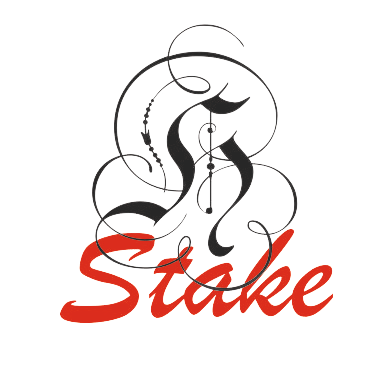Effective job searching is essential for achieving career growth, financial security, and personal fulfilment. A well-crafted strategy accelerates the job search process and helps candidates secure positions that align with their skills, values, and long-term career goals. In today’s highly competitive job market, understanding the current landscape is crucial. This includes being aware of which industries are expanding, the specific skills that are in high demand, and how broader economic factors, such as technological advancements or economic downturns, are influencing employment opportunities. Additionally, staying informed about trends like the rise of remote work, the growing gig economy, and the increasing importance of digital competencies enables job seekers to tailor their approach, making them more adaptable and competitive in their search for the right job. To tailor your job search for a more effective result, then you need to adopt the following strategies:
Self-Assessment and Preparation
Before starting your job search, it’s crucial to have a clear understanding of your career goals. This includes distinguishing between short-term and long-term objectives. Short-term goals might involve securing immediate employment or gaining specific experiences that enhance your skills and qualifications. In contrast, long-term goals focus on where you envision your career in the future, whether that means advancing into leadership roles, shifting industries, or achieving a balanced work-life dynamic. Identifying your preferred industries and roles is also important, as it helps you focus your search on areas that excite you, align with your values, and offer growth opportunities. Whether you are drawn to technical roles, creative positions, or leadership opportunities, knowing your preferences will streamline your job search process.
A thorough skill assessment is another key step in preparing for a job search. Begin by evaluating your hard skills, which are specific, teachable abilities like coding, writing, or data analysis. These are essential for performing particular jobs and can be easily measured. In addition to hard skills, consider your soft skills, such as communication, teamwork, and problem-solving abilities. These interpersonal skills are crucial across all industries and can distinguish you from other candidates. Conducting a gap analysis—comparing your current skills with those required for your desired jobs—can highlight areas for improvement. Developing a plan to close these gaps, through courses, certifications, or self-study, ensures you remain competitive in the job market.
Building a strong personal brand is essential to presenting yourself effectively to potential employers. Start by crafting a professional resume that is concise, clear, and tailored to each job application. Highlight your relevant experience, achievements, and skills, using strong action verbs and quantifying accomplishments where possible. An engaging LinkedIn profile is equally important, as it serves as a dynamic extension of your resume. Make sure your profile is complete, with a strong headline, a well-written summary, and detailed descriptions of your experiences. Participate in industry groups, leave comments on posts, and share content to foster active engagement with your network. Additionally, if you’re in a creative field, developing a portfolio is crucial. Your portfolio should showcase your best work, be easy to navigate, and be visually appealing, providing tangible proof of your skills and abilities.

Job Search Strategies
Online job portals and websites are among the most essential tools in a job search, offering a centralized place to find a wide range of job opportunities. Major job boards like Indeed, LinkedIn, and Glassdoor aggregate job postings from various companies, allowing you to easily search for positions that match your skills and interests. These platforms also offer additional features, such as job alerts, company reviews, and tools to track your applications, making the job search process more efficient. Beyond the general job boards, niche job sites cater to specific industries or professions, such as tech, healthcare, or non-profits. These specialized platforms can be particularly valuable for finding opportunities that are closely aligned with your expertise and career goals.
Networking remains one of the most effective job search strategies, often leading to opportunities that aren’t advertised publicly. Building professional connections can open doors to new job leads, referrals, and career advice. Engaging with professionals through LinkedIn, attending industry events, or directly reaching out to individuals whose work you admire can significantly expand your network. Leveraging alumni networks can be particularly powerful, as alumni are often eager to support fellow graduates. These networks can provide mentorship, valuable career guidance, or introductions to potential employers. Additionally, attending industry events and job fairs offers the chance to meet employers face-to-face, discover new job openings, and keep abreast of industry trends while expanding your professional network.
Social media platforms, especially LinkedIn, play a crucial role in modern job searching. LinkedIn allows you to connect with industry professionals, join relevant groups, and engage with content related to your field, all of which can enhance your visibility to potential employers. By actively posting about your work or industry-related topics, you can further increase your profile’s visibility. While LinkedIn is the go-to platform, others like Twitter can be valuable. On Twitter, you can follow companies and thought leaders, and engage in relevant conversations, which can keep you informed about job openings and industry news. Depending on your industry, platforms like Facebook or Instagram can also be effective for networking and showcasing your professional skills.
Working with recruiters and employment agencies is another strategy that can complement your job search efforts. Recruiters, particularly those who specialize in your industry or job type, can help match you with opportunities that fit your skills and experience. They offer in-depth market knowledge and can provide valuable advice throughout your job search process. To make the most of working with recruiters, it’s important to be professional and responsive, providing them with a polished resume and being clear about your job preferences. Preparing thoroughly for any interviews they arrange can also increase your chances of securing the right job.
Application Process
Customizing your resume and cover letter for each job application is essential to stand out in a competitive job market. Tailor your materials to match the specific job description by highlighting relevant experience and incorporating keywords from the posting. This approach shows that you’ve carefully read the job requirements and understand how your skills align with the company’s needs. Focus on your most pertinent experiences and achievements, using specific examples to demonstrate your qualifications and the value you can bring to the organization.
Thorough preparation for interviews is critical to making a strong impression on potential employers. Start by researching the company to understand its culture, products, and market position, which will allow you to tailor your responses and demonstrate genuine interest in the role. Prepare your responses to frequently asked interview questions, such as “Tell me about yourself” and “Why do you want to work here?” to articulate your thoughts clearly and confidently. Additionally, be ready for behavioural and situational interview questions, which assess how you handle challenges. Use the STAR method (Situation, Task, Action, Result) to structure your responses, providing concrete examples of your past successes.
Following up after an interview is a professional way to reinforce your interest in the role. Send a thank you note within 24 hours, expressing appreciation for the opportunity and reiterating your enthusiasm for the position. Mention something specific from the interview to personalize your message and reinforce your connection to the company. If you don’t receive a response within the expected timeframe, it’s appropriate to send a polite follow-up to reaffirm your interest and inquire if additional information is needed from you. This demonstrates persistence and continued enthusiasm for the position.
Leveraging Technology in Job Searching
Technology can significantly simplify and enhance your job search process through the use of job search apps and tools. By setting up job alerts on popular job boards, you can keep informed about job vacancies and guarantee that you are notified as soon as new possibilities that fit your criteria are posted. Additionally, using tools like Trello or Excel to organize and track your applications helps you manage your job search efficiently, ensuring that you follow up appropriately and avoid duplicate applications.
AI and machine learning can further optimize your job search by refining your application materials and interview preparation. Resume optimization tools, such as Job Scan, can analyze your resume and align it with specific job descriptions, increasing the likelihood that your resume will pass through applicant tracking systems (ATS) and reach hiring managers. Moreover, AI-powered interview practice tools can simulate interviews, providing detailed feedback on your responses, speech patterns, and body language, allowing you to improve your interview performance.
As remote work becomes increasingly common, job searches often involve virtual components. To adapt to virtual recruitment processes, it’s crucial to prepare for online interviews and remote onboarding by ensuring your technology is reliable and your environment is free from distractions. Additionally, showcasing your digital proficiency is key, particularly for remote positions. Highlight your experience with remote collaboration tools, virtual communication, and online project management to demonstrate your ability to thrive in a digital work environment.
Handling Job Offers
When you receive a job offer, it’s crucial to evaluate it thoroughly to ensure it meets your needs and expectations. Begin by comparing the salary with the benefits package, including health insurance, retirement plans, paid time off, and additional perks. Assess how these align with your financial needs and personal priorities. Additionally, consider the company culture, as it greatly impacts job satisfaction. Reflect on whether the company’s values, work environment, and management style fit with your own preferences and working style.
Negotiating salary and other terms is a standard part of the job offer process. Start by researching industry salary benchmarks for your role and experience level to set realistic expectations and support your negotiation. Approach the negotiation process with confidence and professionalism, clearly communicating your value and providing specific reasons for your requests. Be prepared to discuss and justify your terms while remaining open to compromise, ensuring a mutually beneficial agreement.

Coping with Rejections
A positive outlook is crucial because rejection is an inevitable part of the job-seeking process. Each rejection provides an opportunity to learn and grow, so take the time to reflect on any feedback you receive and consider how you might adjust your approach for future applications. Staying motivated throughout the job search is also crucial. Set small, achievable goals to keep yourself on track, take breaks when necessary to avoid burnout, and regularly remind yourself of your long-term career objectives to stay focused.
Seeking and using constructive feedback can greatly enhance your job search strategy. If you receive feedback after an interview or application, use it to make targeted improvements, such as refining your resume, honing your interview skills, or broadening your job search criteria. Additionally, you will become a more competitive applicant if you consistently improve your knowledge and abilities. Consider taking online courses, attending workshops, or engaging in other professional development activities that align with your career goals to stay ahead in the job market.
Conclusion
A successful job search involves a comprehensive approach that includes self-assessment, effective networking, leveraging technology, and continuous improvement. By thoroughly evaluating your career goals, honing your skills, and utilizing various tools and strategies, you can enhance your chances of finding the right job. It’s important to stay persistent and resilient throughout the process, as job searching can be challenging. With a well-rounded strategy, patience, and perseverance, you will increase your likelihood of securing the ideal opportunity.





